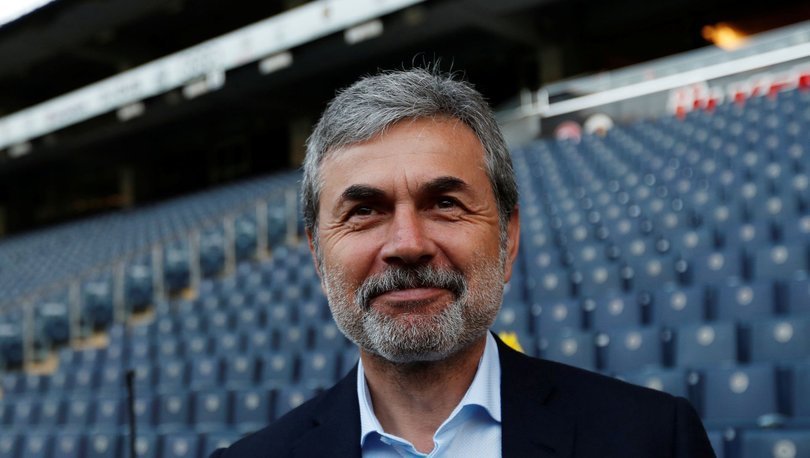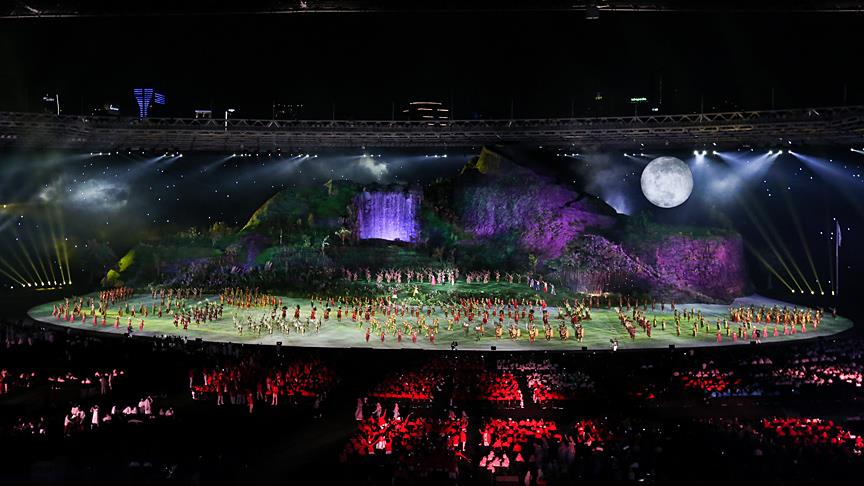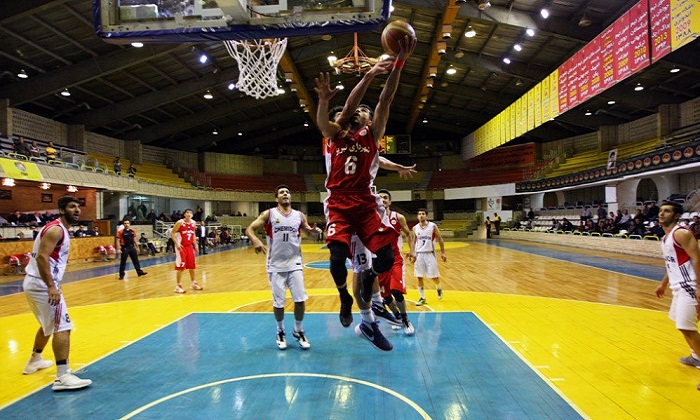Ethnic tensions spill onto Iranian soccer pitches
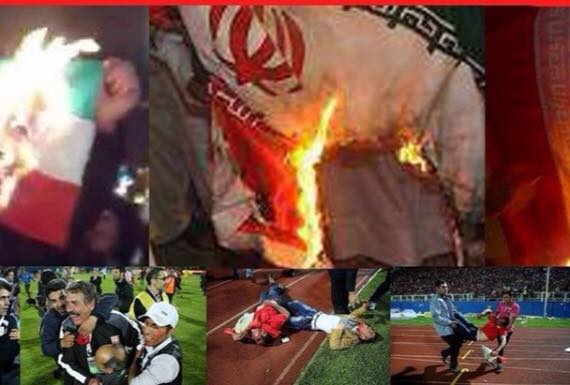
By James M. Dorsey
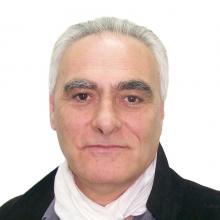
Against a backdrop of the violent redrawing of the map of the Middle East as minorities assert their rights, rebels challenge the existing order, and militant Islamists seek to carve up the post-colonial order, Iranian soccer pitches are signalling that the Islamic republic is not totally immune to the region’s upheaval.
To be sure, the territorial integrity of Iran which unlike countries like Syria and Iraq boasts a strong state, rooted institutions, an imperial history and a culture that dates back hundreds of years, is nowhere close to being called into question.
Yet, soccer fans in different parts of Iran populated by ethnic minorities as well as protesters in Kurdish regions of the country are demanding rights and in some cases hinting at a desire to break away from the Islamic republic.
In the latest incident, soccer fans took this week to the streets of Tabriz, the capital of East Azerbaijan province, and other cities in the province, according to opposition groups, in protest against what they see as political interference in the Iranian Premier League final between Tractor Sazi Tabriz FC, a symbol of Iranian Azeri identity, and Naft Tehran FC, owned by the National Iranian Oil Company (NIOC) to prevent the Azeri club from clinching this year’s trophy.
The protests centre on a decision by the referee in the last 20 minutes of the game to give a red card to Traktor Sazi midfielder Andranik Teymourian, which allowed Naft Tehran to turn defeat into a tie. ‘The atmosphere within the stadium quickly shifted from celebratory to anger after the referee’s call,” said Araz News operated by the Azerbaijan National Resistance Organization (ANRO)
). It said throughout the game fans had been chanting Azerbaijani nationalist slogans.
Southern Azerbaijan, another opposition website, said that clashes with security forces erupted in the Sahand Sport Stadium and the streets of Tabriz at the end of the match as protesters decried the alleged manipulation of the match. Fan shouted ‘Stop Persian Racism, ‘’Down with Islamic Republic,’ and ‘Long live Azerbaijan’ during the protests.
The website said Traktor Sazi had been playing defensive in the last 20 minutes of the match because the team’s coach Tony Oliviera had been informed by the Islamic Republic of Iran’s Football Federation (IRIFF) that the results of parallel matches meant that the Tabriz club would only need a draw to win the championship. “We were tricked,” Mr. Oliveira told the official IRNA news agency.
Southern Azerbaijan said that mobile communications in the stadium in the last minutes of the match had been disrupted. “We were following the other game on television in the changing room but at 87 minutes in, suddenly the TV, radio and cell phone networks blacked out and we had no means of communication,” Agence France Presse quoted Naft Tehran CEO Mansour Ghanbarzadeh as saying.
East Azerbaijan governor Esmaeil Jabbarzadeh reportedly conceded on television that the outcome of the match was questionable as he called for calm.
Stadia in Tabriz have in recent years been the scene of a number of environmental and nationalist protests and clashes with security forces in which fans chanted secessionist slogans. “The main (Iranian concern) is that the idea of Turkism is strengthening in South Azerbaijan,” News.Az, a pro-Azeri news website, quoted Saftar Rahimli, a member of the board of the World Azerbaijani Congress, as saying. Mr. Rahimli was referring to Eastern Azerbaijan by its nationalist Azeri name.
Similarly, a soccer pitch in the Iranian city of Ahvaz, the capital of the oil-rich southern province of Khuzestan and home to Iran’s Arab minority, emerged last month as a flashpoint of anti-government protest at a time of rising Arab-Iranian tensions over the status of Shiite Muslim minorities in the Arab world, the crisis in Yemen, and the outlines of a multilateral agreement that would curb Iran’s nuclear program and return the Islamic republic to the fold of the international community. Teachers in Ahwaz have since held anti-government protests.
Soccer fans clashed with security forces twice in recent months in Ahwaz, the second time in April after a match between state-owned Foolad FC and Teheran’s Esteghlal FC, according to the National Council of Resistance in Iran, a coalition of opposition groups dominated by the Mujahedeen-e-Khalq, a group that was tainted when it moved its operations in 1986 to Iraq at a time that Iraq was at war with Iran after being expelled from France.
Ethnic Arabs have long complained that the government has failed to reinvest oil profits to raise the region’s standards of living. The World Health Organization (WHO) identified Ahwaz in 2013 as Iran’s most polluted city.
Authorities distributed in February tens of thousands of surgical masks and more than 26,000 gallons of milk in Ahvaz, a city of more than 1 million, when it was hit by a severe sand storm that forced the closure of schools and offices, the cancellation of flights, and prompted scattered protests. Some Arab commentators have called against the backdrop of Saudi Arabia and Iran fighting proxy wars in Syria, Iraq and Yemen for Iranian Arabs to secede from the Islamic republic.
If soccer fans in East Azerbaijan and Khuzestan were not a big enough headache for the government, police in the majority Kurdish city of Mahabad sought earlier this month to quell riots after a 25 year-old hotel maid died jumping from a fourth floor balcony as she tried to escape from an intelligence official who was allegedly trying to rape her. Crowds mobilized by women’s rights activists demanded answers refusing to be sent home with an announcement that a civilian suspect had been taken into custody. Amateur video showed the hotel allegedly being put on fire. One person was killed and 50 reportedly injured in clashes with police.
Iranian Kurds concede that hopes that this month’s demonstrations will ignite a wider spread protest are likely to prove wishful thinking with Kurdish groups hopelessly divided even as Kurds in Iraq and Syria have carved out entities of their own and the Kurdish Workers Party (PKK) negotiates greater rights for Kurds in Turkey with the government in Ankara.
“All of these parties are frozen in the past and completely dependent on the Iraqi Kurds. They made no effort to create a clandestine movement inside Iran, believing that the regime would implode. Their calculation proved to be wrong,” Al-Monitor quoted Abbas Vali, a prominent Istanbul-based Iranian Kurdish academic, as saying.
James M. Dorsey is a senior fellow at the S. Rajaratnam School of International Studies as Nanyang Technological University in Singapore, co-director of the Institute of Fan Culture of the University of Würzburg and the author of the blog, The Turbulent World of Middle East Soccer, and a forthcoming book with the same title.


